Announcements
ELECTRONIC LAB NOTEBOOKS (ELNs)
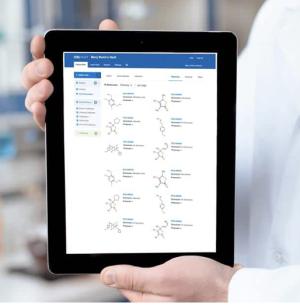
NIH lab notebooks are joining the 21st century! Due to a mandate that requires the Federal government to convert to electronic records keeping by June 2024, NIH rose to the challenge to ensure our intramural research community could meet the requirements by the deadline. Because the mandate means that no new paper notebooks may be created after June this year, two different commercial ELNs have been made available for all NIH laboratories: LabArchives, a general purpose ELN, and Signals, a chemistry specific ELN.
These software tools are not only able to digitally replicate paper lab notebooks to record experimental results but also have numerous advantages in facilitating good research, data management practices, providing for data security, intellectual property protection, auditing, ease of publishing and collaboration. NIH Scientific and Clinical Directors voted to add ELN policy and requirements to the NIH Sourcebook at a meeting this spring, and a new section under the Intramural Program Oversight section is under development.
The NIH Library held an ELN Roundtable Discussion on March 18 which included an Introduction by DDIR Nina Schor and speakers addressing Transition to Electronic Recordkeeping, Laboratory Notebook Best Practices, NIH ELN Implementation Strategy, The Research Integrity Case for Using ELNs, Nonclinical Studies in Support of FDA Applications, Technology Transfer Considerations, and Use Cases/Examples.
For more information see: Sourcebook Draft: NIH IRP Electronic Lab Notebook Resources.
Contact your IC’s representative on the NIH ELN Implementation Team, Janelle Cortner(janelle.cortner@nih.gov) or Anna Amar (anna.amar@nih.gov) with questions.
TEXTING POLICY FOR GOVERNMENT-ISSUED MOBILE DEVICES
All text messages sent and received on mobile devices, considered NIH business communications, must comply with NARA’s record-keeping standards.
NIH staff are prohibited from using texts for official NIH business if using:
- A non-NIH issued mobile device. Exceptions are permitted in situations where human life and safety are at risk, but they must be forwarded to an official NIH email account (or Teams, Skype, Zoom) within 20 days.
- Unapproved internet protocol based mobile messaging (e.g., Apple iMessage, WhatsApp, Messenger for Android, and other instant and direct messaging communication services) on any device.
NIH staff may text for official NIH business if using:
- NIH approved and maintained communication technologies (e.g., Teams, Skype, Zoom)
- An NIH issued mobile device, or Mobilelron/Ivante on another mobile device, IF they forward the correspondence (sent or received) within 20 business days to their official NIH email account, or Teams, Skype, Zoom, for proper records preservation.
If NIH staff receive messages on their personal mobile device from an external source:
- Individuals should forward messages regarding NIH business to an NIH approved communication platform (such as NIH email, Teams, Skype, Zoom) and respond via an approved communication platform.
- Staff may respond to the original text message to obtain the information necessary (such as email address) to continue communicating on an approved communication platform.
For more information, refer to the NIH Policy Manual:
2023–2024 WEDNESDAY AFTERNOON LECTURE SERIES (WALS)

- Most Wednesdays through June; 2–3 p.m.
- In-Person in Lipsett Amphitheater (Building 10)
- VideoCast: https://videocast.nih.gov
- WALS website: https://oir.nih.gov/wals
- Join the WALS mailing list: https://list.nih.gov/cgi-bin/wa.exe?SUBED1=WALS&A=1
The NIH Director’s Wednesday Afternoon Lecture Series (WALS) is the highest-profile lecture program at the NIH. All lectures are in Lipsett Amphitheater (Building 10) unless noted otherwise, and broadcast via NIH VideoCast.
May 8: Florence Mahoney Lecture on Aging: From Policies to pTau: Exposing Social and Structural Drivers of Alzheimer’s Disease and Opportunities for Brain Health Justice, Jennifer J. Manly, Ph.D. (Columbia University)
May 15: Robert S. Gordon Jr. Lecture: Addressing Health Disparities in Diabetes: Intersection of Structural Racism, Social Determinants, and Racial/Ethnic Disparities, Leonard E. Egede, MD, MS (Medical College of Wisconsin)
May 22: Type 2 Diabetes Among Asian-Americans: Elevated Prevalence and Novel Risk Factors, Maria Rosario (Happy) Araneta, Ph.D., M.P.H. (UC San Diego)
May 29: George Khoury Lecture: Coronavirus Activation and Antagonism of Interferon Signaling Pathways: from MHV to SARS-CoV-2, Susan R. Weiss, Ph.D. (University of Pennsylvania, Perelman School of Medicine)
June 5: Brain-Wide Silencing of Prion Protein and Treatment of Prion Diseases by AAV-Mediated Delivery of CHARM an Engineered Compact Epigenetic Editor, Jonathan Weissman, Ph.D. (Whitehead Institute for Biomedical Research, Massachusetts Institute of Technology)
June 12: Quantitative Proteomics for Understanding Epigenetics Mechanisms, Benjamin Garcia, Ph.D., FRSC (Washington University School of Medicine)
REDDIT ASK ME ANYTHING: EXPLORING BREAST CANCER METASTISIS AND SCIENCE COMMUNICATION USING SIGN LANGUAGE
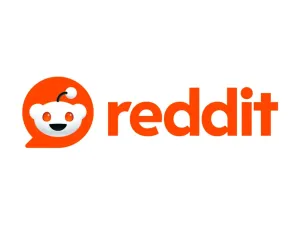
- Tuesday, May 7, noon–2 p.m.
- Join the event and ask questions at https://www.reddit.com/r/askscience/
Join a Reddit Ask Me Anything (AMA) event featuring Megan Majocha, a postdoctoral fellow who conducted her Ph.D. thesis in the lab of Kent Hunter, senior investigator at NCI. Majocha’s research focuses on a specific protein's role in the metastatic progression of triple-negative breast cancer. In joining the NIH-Georgetown partnership program, Megan gained access to resources that not only helped her conduct her research, but also allowed her, a fluent user of both American Sign Language and English, to communicate her research in a way that is accessible to a broader audience.
NATIONAL WOMEN’S HEALTH WEEK: MAY 12–18
During National Women’s Health Week, explore a sampling of NIH resources for researchers and clinicians:
- NIH fact sheets on Women’s Health Research
- 2024–2028 NIH-Wide Strategic Plan on Research on the Health of Women
- U3 Interdisciplinary Research: Bringing Women of Understudied, Underrepresented, and Underreported Populations into Focus
The Office of Research on Women’s Health will host the following events:
May 16: Future Directions in Menopause Research: Optimizing Midlife Health of Women Roundtable, 11 a.m. to 12:45 p.m.
May 15: 8th annual Vivian W. Pinn Symposium, “Synergy in Science: Innovations in Autoimmune Disease Research and Care,” 1–5 p.m.
Learn more at https://orwh.od.nih.gov/our-work/events
NIH LEAVE BANK CELEBRATES 10TH ANNIVERSARY
- To join the NIH Leave Bank and for more information, visit their website or contact them at LeaveBank@od.nih.gov.
The Office of Human Resources (OHR) is proud to announce the 10th Anniversary of the NIH Leave Bank Program. After a highly successful Leave Bank pilot program was implemented for a handful of Institutes and Centers from 2010–2013, the Leave Bank was rolled out NIH-wide on Jan. 12, 2014, and became available to all NIH federal employees.
In its first decade serving all of NIH, the Leave Bank has provided paid leave to over 1,840 employees experiencing personal or family medical emergencies. Click the following link to read some of their success stories. Throughout this timeframe, enrollment in the Leave Bank has grown from just over 4,200 members in 2014 to an incredible 12,228 in 2024.
NEW FRONTIERS IN LIQUID BIOPSIES CONFERENCE
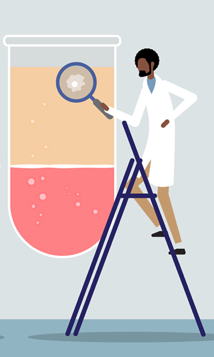
- May 13–14
- Building 45, Natcher Auditorium
- Click here to register.
Stay up to date on the latest developments and advancements in the field of liquid biopsies. Researchers and professionals from all over the world will be sharing their insights and results, and you'll have the chance to network with others in the field. This conference is open to members of the NIH community, academic researchers outside of the NIH, and members of pharma and industry.
Building on the foundation of cell-free DNA prenatal testing, the field of liquid biopsy research has rapidly evolved, with uses spanning from early detection of cancer and monitoring of organ transplants. Unlike traditional biopsy methods that require invasive procedures to obtain tissue samples, liquid biopsies use simpler methods to detect disease markers, including cells themselves, in different biofluids, including blood, urine, and even cerebral spinal fluid. This less invasive approach allows for repeated monitoring over time.
NIH ARTIFICIAL INTELLIGENCE SYMPOSIUM

- Friday, May 17, 9 a.m. to 5:30 p.m.
- Masur Auditorium, Building 10
- Click here to register.
This one-day NIH AI Symposium will bring together researchers from a broad range of disciplines to share their AI-related research, with the goal of disseminating the newest AI research, providing an opportunity to network, and to cross-pollinate ideas across disciplines in order to advance AI research in biomedicine.
Keynote speakers James Zou (Stanford University), and Hari Shroff (Janelia Research Campus), will share their research, and also participate in a panel discussion on the current and future potential of AI in biomedical sciences. There will also be short talks and posters from researchers on campus who are developing or using AI approaches.
NIH LAB MANAGERS WORKING GROUP VENDOR CAPABILITIES
- Thursday May 23, noon-1 p.m.
- Virtual event posted on Teams through the LMWG LISTSERV
Vendors PHC Corp of North America, Celltreat, and Greiner, will present what they provide to the NIH Research Community. Contact LMWG@nih.gov with questions.
ASIAN AMERICAN, NATIVE HAWAIIAN, AND PACIFIC ISLANDER HERITAGE MONTH
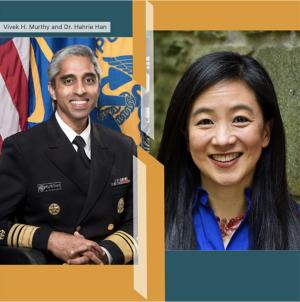
May 23: 4th Annual Dr. Vivek H. Murthy Distinguished Lecture Series for Public Health Leadership hosted by the Federal Asian Pacific American Council. The virtual event begins at 2 p.m.
June 3: Join NIH’s Office of Intramural Research and the Office of Equity, Diversity, and Inclusion for the annual Kuan-Teh Jeang Memorial Lecture, which highlights the contributions of AA and NHPI biomedical researchers and leaders in honor of the late Dr. Jeang. Attend in-person at 2 p.m, Lipsett Amphitheater, or watch on NIH VideoCast.
BARMES LECTURE 2024 “GLOBAL HIV/AIDS RESPONSE: THEN, NOW, FUTURE”
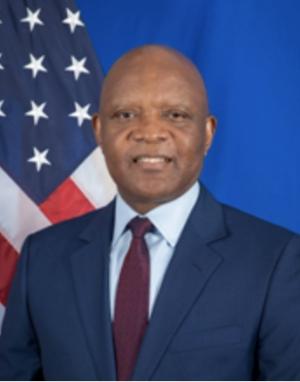
- Wednesday, June 5, 1–2 p.m.
- Natcher Conference Center, Building 45
- To attend in person, click here to register.
- Attend virtually via NIH Videocast.
The Fogarty International Center and NIDCR present the David E. Barmes Global Health Lecture 2024: titled “Global HIV/AIDS Response: Then, Now, Future.” This year’s lecture will be delivered by Ambassador John Nkengasong, U.S. global AIDS coordinator and senior bureau official for Global Health Security and Diplomacy, in which role he oversees the U.S. President's Emergency Plan for AIDS Relief (PEPFAR).
This page was last updated on Tuesday, December 3, 2024
